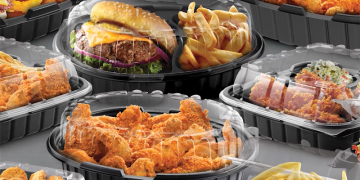“We are very excited about this pioneering closed-loop project that demonstrates the feasibility and speed of implementing circular plastic innovations when leading actors from across the entire value chain are closely collaborating,” says Lada Kurelec, General Manager PP, PET, PS, PVC, PU & Elastomers Businesses for Petrochemicals at SABIC. “Used flexible packaging has a high feedstock value for new materials, and our TRUCIRCLE polymers and services form an instrumental element in tapping this vast potential.”
The new mono-material packaging solution continues the partners’ efforts to support a circular economy by incorporating advanced recycled content in healthy snack bar packaging. “At Mars, we want to contribute to a circular economy where packaging material never becomes waste, but is recycled, reused or composted. For this to happen, we need new solutions and infrastructure to change the recycling landscape and to complement mechanical recycling,” added Barry Parkin, Chief Procurement & Sustainability Officer at Mars. “Today marks another important step in accelerating our sustainable packaging journey and in our collaboration with partners like SABIC that are enabling new opportunities to provide consumers with packaging designed for circularity.”
“Mixed used plastic from flexible consumer packaging is difficult to sort and recycle mechanically,” adds Uwe Echteler, Chief Operating Officer, for Landbell Group. “However, as demonstrated in this closed-loop project, we can facilitate effective advanced recycling solutions that allow plastics and packaging manufacturers as well as OEMs and brand owners to reclaim and benefit from the value of mixed used plastics while at the same time reducing fossil depletion and enhancing their carbon footprint.”
Value chain collaboration
The loop starts with the collection of mixed used plastics coordinated by Landbell Group, a leading provider of environmental and chemical compliance services. Landbell works with Hündgen Entsorgung to sort the mixed used plastics and delivers the mixed material to Plastic Energy, a global leader in advanced recycling technology, where it is converted to pyrolysis oil in a patented thermal anaerobic conversion process. The pyoil serves as alternative feedstock in SABIC’s production process of virgin-quality food-contact approved PP polymer, which is pelletized and supplied to Taghleef Industries, a world leading provider of biaxially oriented PP (BOPP) film.
SIT Group, a key supplier of high-quality printed flexible plastic packaging to the European consumer market, uses the BOPP film manufactured by Taghleef with SABIC’s certified circular polymer to create printed BOPP roll-fed packaging for KIND brand snack bars and delivers it to Mars, Incorporated, a global leader in confectionery, food, and pet food products. The joint initiative will help the partners implement their ambitious targets of reducing the volume of fossil-sourced plastics and accelerate the transition to a more circular plastics economy.
Mono-material for ease of recyclability
The new flexible BOPP packaging structure made with circular PP food-grade is another important milestone towards enabling mono-material applications that facilitate end-of-life recycling in existing collection and conversion streams without compromising on quality or ease of processing. Mars has already incorporated certified circular PP polymer from SABIC’s TRUCIRCLE portfolio in the primary packaging of some of its popular wet pet food brand SHEBA®. After successful piloting, the certified circular PP food-grade will now be introduced into the KIND snack bar wrap as part of the group’s plans to increase its volumes of recycle content also in other brand products packaging.
SABIC’s certified circular PP polymer is verified and authenticated in a mass balancing approach under the International Sustainability and Carbon Certification (ISCC) PLUS scheme. The certified circular products from the supplier’s TRUCIRCLE portfolio offer a carbon footprint reduction in the range of 2 kg of CO2 per each kilogram of polymer produced based on the diversion of post-consumer used plastic from incineration.




















